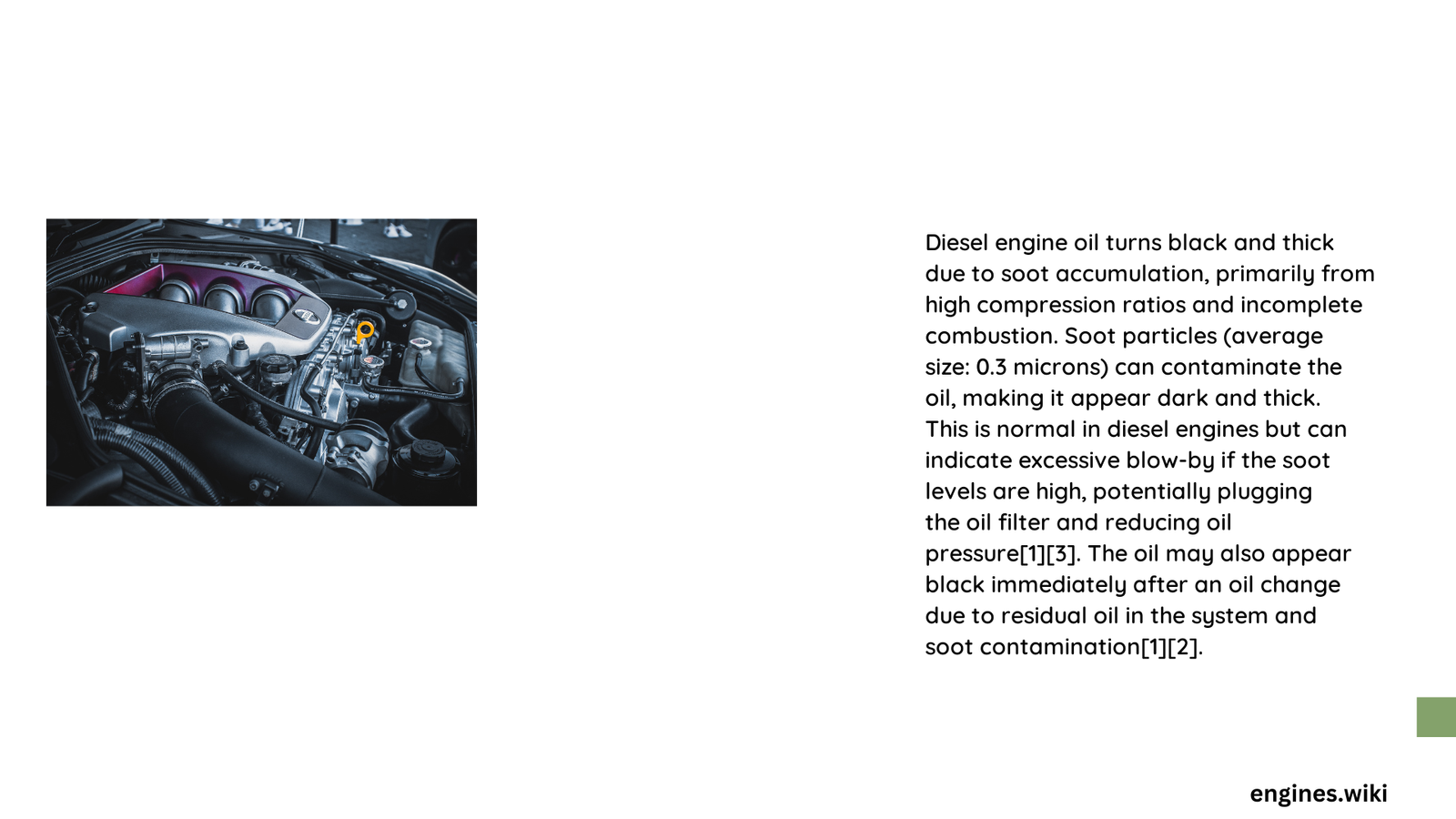Diesel engine oil turning black and thick is a complex phenomenon that signals critical changes in lubricant condition, potentially indicating significant internal engine processes, contamination, and wear. Understanding these transformations helps vehicle owners diagnose potential issues, maintain engine health, and prevent costly mechanical failures through proactive maintenance strategies.
Why Does Diesel Engine Oil Turn Black and Thick?
What Causes Oil Darkening and Increased Viscosity?
Diesel engine oil undergoes substantial chemical and physical transformations during its operational lifecycle. Several key factors contribute to its darkening and thickening:
- Contamination Mechanisms
- Soot accumulation from combustion processes
- Metal particle integration from engine component wear
- Carbon residue buildup
-
Oxidation and thermal degradation
-
Molecular Breakdown Processes
- Thermal stress causing molecular structure changes
- Additive package deterioration
- Hydrocarbon chain fragmentation
| Contamination Source | Impact on Oil Characteristics | Severity Level |
|---|---|---|
| Soot Particles | Increases viscosity | High |
| Metal Wear Debris | Reduces lubrication efficiency | Medium-High |
| Carbon Residues | Accelerates oil breakdown | Medium |
| Oxidation | Promotes chemical instability | High |
How Does Oil Thickness Affect Engine Performance?
Thickened diesel engine oil significantly influences multiple mechanical parameters:
- Reduced Lubrication Efficiency
- Increased internal friction
- Compromised oil circulation
-
Higher mechanical resistance
-
Potential Mechanical Stress
- Enhanced wear on moving components
- Reduced heat dissipation capabilities
- Potential premature component failure
What Are the Warning Signs of Problematic Oil Condition?
Critical indicators suggesting oil degradation include:
- Dark, opaque appearance
- Increased viscosity
- Gritty or granular texture
- Burnt odor
- Reduced oil pressure readings
Diagnostic and Preventive Strategies

How Can Owners Mitigate Oil Degradation?
Implementing proactive maintenance techniques helps minimize diesel engine oil black and thick complications:
- Regular oil analysis
- Consistent oil change intervals
- Using high-quality lubricants
- Monitoring engine operating conditions
- Addressing root cause of contamination
What Professional Interventions Prevent Oil Degradation?
- Comprehensive Oil Analysis
- Spectroscopic examination
- Viscosity measurement
-
Contamination assessment
-
Advanced Filtration Techniques
- High-efficiency particulate filters
- Centrifugal oil cleaning systems
- Synthetic media filtration
Technical Recommendations for Optimal Performance
- Select manufacturer-recommended oil viscosity
- Use premium synthetic or semi-synthetic formulations
- Implement strict maintenance schedules
- Monitor oil condition through periodic testing
Conclusion
Understanding diesel engine oil black and thick transformations requires holistic comprehension of mechanical, chemical, and operational dynamics. Proactive monitoring, timely interventions, and strategic maintenance ensure prolonged engine health and optimal performance.
